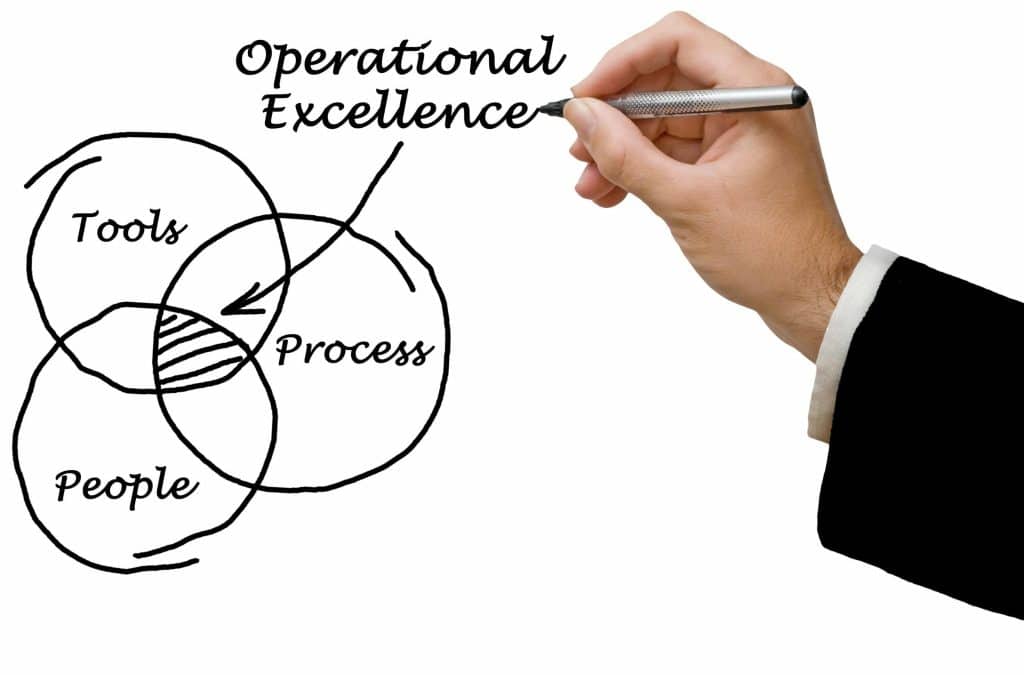A business and its competitive landscape continuously changes, and achieving operational excellence is essential for sustainable growth and competitive advantage. Operational excellence entails the continuous improvement of processes, systems, and practices to enhance efficiency, reduce costs, and deliver superior value to customers. While it requires a concerted effort across all departments, the role of a bookkeeper is often underestimated in this pursuit. In this blog, we’ll explore how introducing operational excellence in a business can be facilitated by the expertise of a bookkeeper.
- Streamlining Financial Processes: One of the primary responsibilities of a bookkeeper is to manage financial transactions, including accounts payable, accounts receivable, and payroll. By implementing efficient financial processes and leveraging automation tools, a bookkeeper can streamline these operations, reducing manual errors and accelerating the speed of transactions. This streamlined approach not only saves time but also enhances accuracy and transparency in financial reporting. With the constant changes from regulative bodies, having operational excellence at the forefront of processing, ensures your business remains compliant.
- Data Analysis and Insights: Beyond recording transactions, a bookkeeper can also provide valuable insights through financial analysis. By analyzing financial data, identifying trends, and highlighting areas of improvement, a bookkeeper can contribute to informed decision-making within the organisation. These insights can inform strategic initiatives aimed at enhancing operational efficiency and driving cost savings. When operating a business, it is sometimes difficult to see trends developing. Your trusted bookkeeper can see not only trends within your business but also evolving trends in the market and industry.
- Cost Management and Budgeting: Effective cost management is a cornerstone of operational excellence. A skilled bookkeeper can play a crucial role in monitoring expenses, identifying cost-saving opportunities, and developing comprehensive budgets aligned with organisational goals. By maintaining a keen eye on financial metrics and performance indicators, a bookkeeper can help optimize resource allocation and maximize profitability.
- Compliance and Risk Management: Compliance with regulatory requirements and adherence to industry standards are essential aspects of operational excellence. A bookkeeper well-versed in relevant regulations can ensure that the organisation remains compliant with tax laws, reporting requirements, and financial regulations. Additionally, by implementing robust internal controls and risk management practices, a bookkeeper can mitigate financial risks and safeguard the organisation’s assets.
- Process Improvement Initiatives: Continuous improvement is at the heart of operational excellence. A bookkeeper with a deep understanding of financial processes can actively contribute to process improvement initiatives. By identifying inefficiencies, eliminating bottlenecks, and implementing best practices, a bookkeeper can optimize workflows and enhance overall efficiency across the organisation.
- Technology Integration and Optimization: In today’s digital era, technology plays a pivotal role in driving operational excellence. A bookkeeper proficient in accounting software and financial tools can facilitate the integration of technology into financial processes. Whether it’s transitioning to cloud-based accounting platforms or implementing automation solutions, a tech-savvy bookkeeper can harness the power of technology to streamline operations and improve productivity.
Operational excellence is a multifaceted endeavor that requires the collective and collaborative effort of all stakeholders within an organisation. Enhancing your relationship with your bookkeeper as a trusted partner can go a long way in strengthening the performance of your business. While the role of a bookkeeper may seem confined to financial management, their expertise and insights can significantly contribute to the pursuit of operational excellence. By streamlining financial processes, providing data-driven insights, managing costs, ensuring compliance, driving process improvement, and leveraging technology, a bookkeeper can play a pivotal role in transforming the operational landscape of a business. As businesses strive for greater efficiency and competitiveness, recognising the value of a skilled trusted bookkeeper becomes imperative in achieving operational excellence.
Start a conversation with the team at Omnia Business Solutions and see how they have helped implement operational excellence in their client’s businesses.


